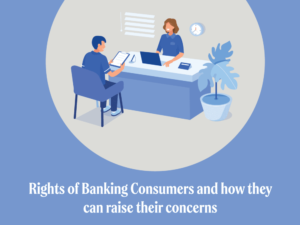Businesses look for finance for a multitude of reasons: to purchase stock or assets, inject cash for growth purposes, marketing campaigns, to refinance existing debt or perhaps to pay a tax bill. Often this involves looking at raising an unsecured business loan.
What is an unsecured Finance loan?
An unsecured business loan is a loan that doesn’t require security to be offered by the director(s) via personal assets, or security offered through the assets of the business, such as property, machinery, or equipment. Most business loans require only a Personal Guarantee, signed by company director(s). Lenders will often prefer a Personal Guarantee to be in place, making them more comfortable with lending to the business and therefore able to offer a larger amount on better terms.
These loan terms differ depending on the lender in question and the loan product offered. Business owners often choose an unsecured business loan as a finance option for the following reasons:
- Competitive rates, especially on term loans which are offered over a period of between 2 to 6 years
- Quick access to finance, usually accessed within a few days or weeks
- Flexible finance, with most offering no early repayment charges and some going further and offering over-repayment with no fees
- Low fees compared to secured loans, usually a one-off fee charged when accepting the loan
With these benefits on offer, knowing how to access a business loan is important.
Understand your reason for borrowing and how it will benefit your business.
The first thing you should understand before applying for a business loan is exactly why you need the funding. Are you wanting to use a business loan to help increase profit levels and if so by how much? Will financial funding business growth with an unsecured business loan make more sense than using cashflow? And if so, why?
Answering these sorts of questions either directly or through a broker will provide lenders with better clarity on your application and will make them feel more comfortable when looking at your funding requirements. If you can demonstrate why the funding you require will benefit the business, it will give added strength to your application.
When you understand your requirements, the next step is to check your credit file.
Know your credit file
Business loan applications involve credit checks on both the director(s) and the business. Lenders have different credit appetites, but all will run credit checks, either hard or soft credit checks. For some lenders, a clear credit file is vital, e.g., no missed payments, defaults or County Court Judgements (CCJs) etc. Other lenders will accept a lower credit score, with some negative aspects on your credit file, but they usually want an explanation.
Checking your business and personal credit file is important before making an application, as there may be some small issues that can be resolved prior to placing applications with lenders e.g. paying off a small default or a CCJ. Some lenders are happy to accept reasoning behind some negative marks on the credit, so checking this information beforehand can help with securing an offer.
The next step is to be prepared to provide the correct documentation, which will also help to strengthen your application.
Have all the necessary documents and more…
As a minimum, most unsecured business loan lenders require, three months business bank statements, personal and business details to run credit checks and the latest filed accounts of the business. But there is also other additional information you can provide which will further benefit your application:
- Management Accounts. These can be taken from accounting software, providing lenders with a Profit & Loss and Balance Sheet showing more up- to date figures. Especially important if your latest filed accounts are twelve months or more old.
- Last 4 quarter VAT returns. If you don’t have management accounts available, it may be helpful to provide VAT returns with your application. Some lenders will automatically ask for VAT returns as part of the application process.
- Creditor & Debtor report. These reports provide up-to-date information on what is owed to and by the business, often requested by lenders for larger loan requests
- File your year-end accounts early. Year-end accounts filed at Companies House lend a significant weighting to your application. If you have had a better trading year than say the previous year, why not file your accounts early to strengthen your application and offer yourself a better chance at a business loan approval.
- Breakdown of existing debt. To establish affordability, lenders will want to be aware of what existing loans and other debt you currently have in the business. Providing a breakdown of this to lenders, including who the loan(s) are with and the amount outstanding, will mean a much smoother and quicker decision on your application.
Once you have all the documents prepared, the next step is to decide which lender to approach.
Do your research on Unsecured Lenders or use a broker
When it comes to business loans, there are many options but finding the right one for your business can be time consuming and confusing. Researching lenders by using Google and reviewing their product offering can be helpful. Applying directly to a lender(s) often involves filling in your details through their portal and uploading documents. After which, the lender(s) will contact you directly with questions or feedback and next steps.
However, most lenders don’t provide you with quotes or their eligibility criteria online, which may mean you end up running unnecessary credit checks, with lenders who do not meet your business’s needs. Alternatively, you may not meet their minimum lending criteria.
Therefore, you may want to consider approaching a specialist broker, who is an expert in business finance, knowledgeable about the market and works with these lenders every day. If you decide to use a broker, they should discuss with you all your options and then deal with the whole application process for you, from start to finish.




